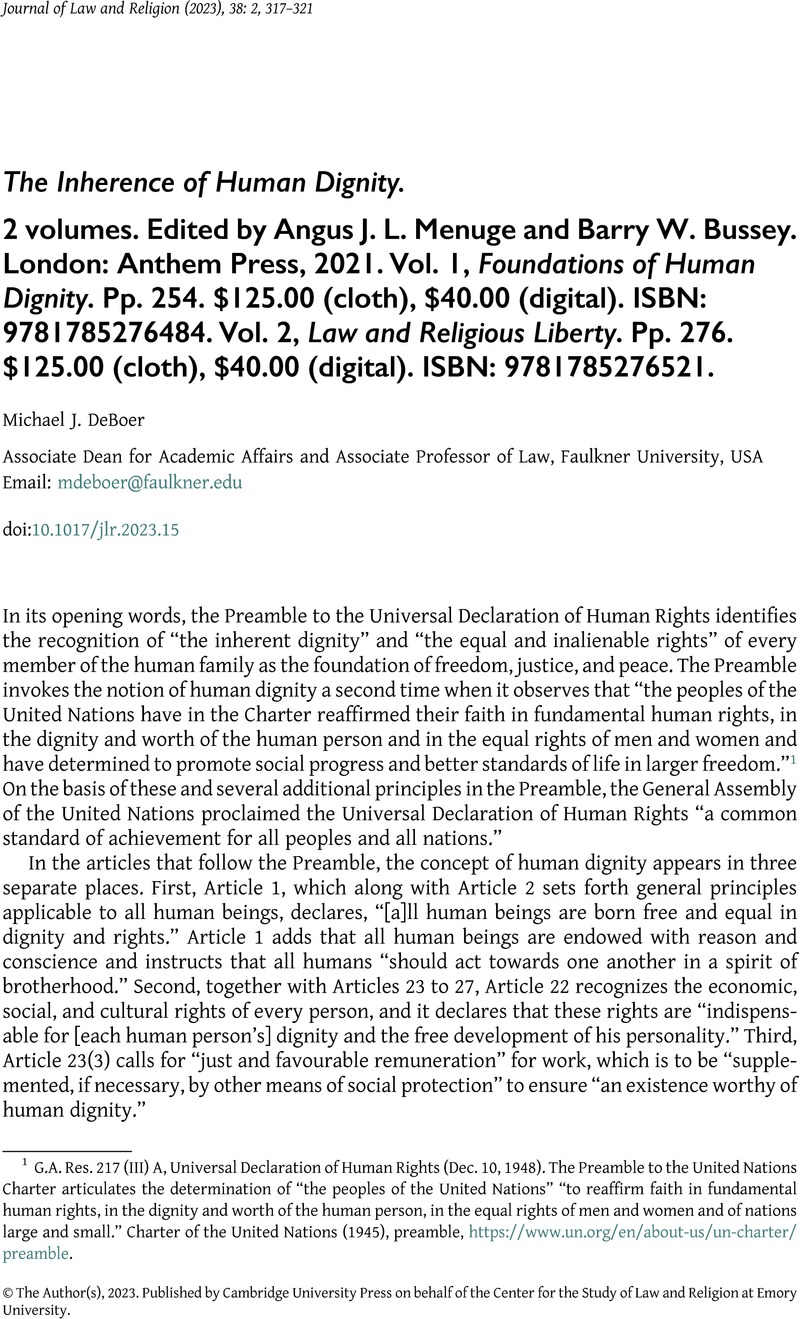No CrossRef data available.
Published online by Cambridge University Press: 24 July 2023

1 G.A. Res. 217 (III) A, Universal Declaration of Human Rights (Dec. 10, 1948). The Preamble to the United Nations Charter articulates the determination of “the peoples of the United Nations” “to reaffirm faith in fundamental human rights, in the dignity and worth of the human person, in the equal rights of men and women and of nations large and small.” Charter of the United Nations (1945), preamble, https://www.un.org/en/about-us/un-charter/preamble.
2 Mary Ann Glendon has observed that human dignity is “[a]n obvious candidate” as an “‘ultimate value whereon those rights depend.’” Glendon, Mary Ann, “Knowing the Universal Declaration of Human Rights,” Notre Dame Law Review 73, no. 5 (1998): 1153–90Google Scholar, at 1172, quoting Jacques Maritain, introduction to Human Rights: Comments and Interpretations, ed. UNESCO (New York: Columbia University Press, 1949), 9–17, at 16.
3 Maritain, introduction, 9.
4 Appendix 2 in UNESCO, Human Rights, 256–72, at 260.
5 Appendix 2 in UNESCO, Human Rights, 260–61.
6 See, for example, Biggar, Nigel, What’s Wrong with Rights? (Oxford: Oxford University Press, 2020)CrossRefGoogle Scholar.
7 See, for example, Witte, John, Jr., review of What’s Wrong with Rights? , by Biggar, Nigel, Oxford Journal of Law and Religion 10, no. 2 (2021): 342–47CrossRefGoogle Scholar.
8 See, for example, Kateb, George, Human Dignity (Cambridge, MA: Belknap Press of Harvard University Press, 2014)Google Scholar; Macklin, Ruth, “Dignity Is a Useless Concept,” BMJ 327, no. 7429 (2003): 1419–20CrossRefGoogle ScholarPubMed; President’s Council on Bioethics, Human Dignity and Bioethics: Essays Commissioned by the President’s Council on Bioethics (Washington, DC: Government Printing Office, 2008); Rosen, Michael, Dignity: Its History and Meaning (Cambridge, MA: Harvard University Press, 2012)CrossRefGoogle Scholar.
9 Menuge, Angus J. L., ed., Legitimizing Human Rights: Secular and Religious Perspectives (Farnham: Ashgate, 2013)Google Scholar; Menuge, Angus J. L., ed., Religious Liberty and the Law: Theistic and Non-Theistic Perspectives (Milton Park: Routledge, 2017)CrossRefGoogle Scholar.